3/16" Aluminum Sheet Plate
Alloys: 6061/5052/3003 Precise Cutting to Specifications
3/16" aluminum sheet refers to aluminum sheet or sheet that is 3/16" thick, approximately 0.1875". This thickness is commonly used in a variety of applications such as the construction, automotive, marine, and aerospace industries.
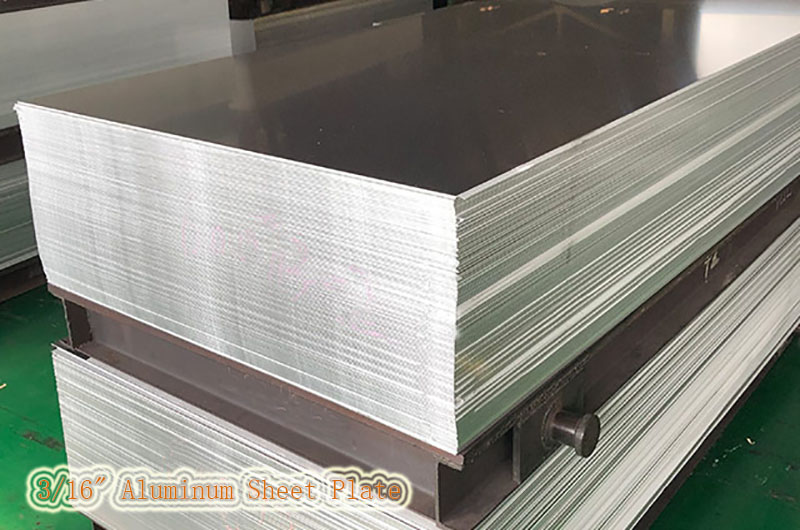
3 16 inch Aluminum Plate for Sale
Typical Size
3 16 inch aluminum plate is available in various sizes and sizes can be customized.
- 4 x 8 x 3 16 aluminum sheet
- 4' x 10' 3 16 aluminum sheet
- 5' x 10'x3 16 aluminum sheet
Certified
ISO 9001, AS9100, and MIL-SPEC. Customers should check with their suppliers to ensure their aluminum plate 3 16 thick meets the necessary certifications and standards.
Surface Treatment
Aluminum sheets and panels can be given a variety of surface treatments to improve their appearance and performance, such as burnishing, brushing, anodizing and painting. The required surface preparation will depend on the specific application requirements.
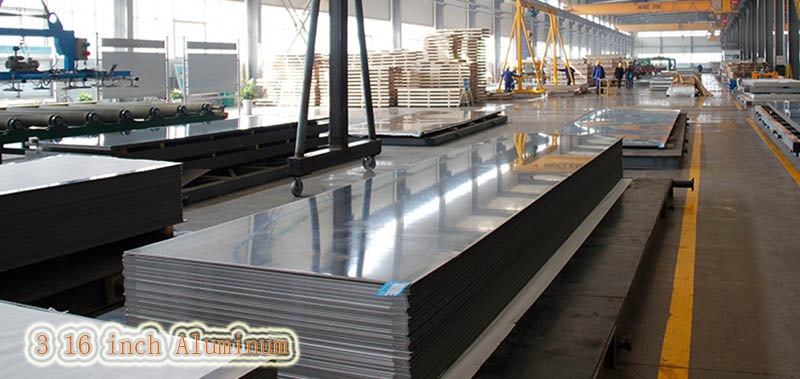
Package
aluminum plate 3 16 thick is usually packed in protective packaging or film to prevent scratches and other damage during shipping and handling. Aluminum sheets and panels can be packed in pallets or crates depending on the order quantity and size.
Always consult your supplier to determine specific specifications and options for 3/16" aluminum plate based on your application requirements.
High-quality 3/16 Aluminum Sheet
- Alloys: High-quality raw materials to ensure required properties such as strength, corrosion resistance and machinability.
- Thickness tolerance: The thickness of the plate meets the specified tolerance requirements to ensure consistent and accurate material performance.
- Surface quality: The surface of the board is smooth and uniform, without defects such as scratches, dents or cracks.
- Flatness: Sheets are flat and free from warping or bending to ensure easy handling and processing.
- Certification: High-quality 3/16" aluminum plates are accompanied by supporting documents such as material inspection reports to verify material performance and quality.
- Packaging: The panels are properly packaged to prevent damage during transportation and storage.
3 16 Thick Aluminum Plate Typical Alloy
Available Alloys: Commonly used aluminum alloys for 3 16 thick aluminum plate include 6061, 5052, 5086, 2024, 3003, etc. Each alloy has different properties and characteristics that make it suitable for different applications.
3 16 Aluminum Plate 5052
5052 aluminum is a popular choice for applications requiring high corrosion resistance, such as marine and automotive components. It is also commonly used in sheet metal, fuel tank and trailer siding.
3/16 Aluminum Sheet 6061
6061 Aluminum is a versatile alloy used in a wide variety of industries including aerospace, automotive, marine and construction. Some application examples include aircraft fittings, structural components, truck parts, marine hardware, and architectural trim.
3/16 Aluminum Sheet 3003
3003 Aluminum is a non-heat treatable alloy widely used in sheet metal working, cookware, and general manufacturing. Some application examples include kitchen equipment, heat exchangers and storage tanks.
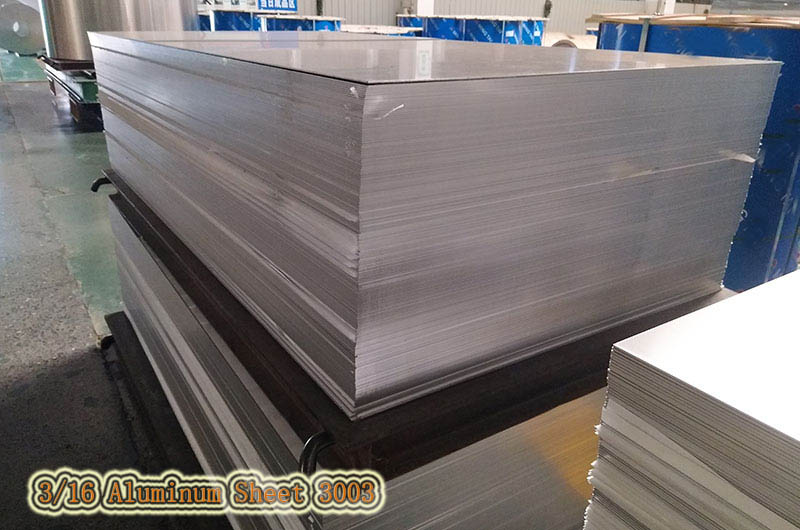
3 16 Aluminum Sheet 5086
5086 Aluminum is a high strength alloy commonly used in marine and underwater applications due to its excellent corrosion resistance. Some application examples include ship hulls, subsea structures and underwater pipelines.
3 16 Aluminum Sheet 2024
2024 Aluminum is a high-strength alloy commonly used in aerospace and military applications due to its excellent strength-to-weight ratio. Some application examples include aircraft components, missile components, and spacecraft structures.
It is worth noting that these are just a few examples of the many applications for 3/16" aluminum sheet made from various alloys. Specific application requirements will depend on factors such as intended use, environment, and performance requirements. It is important to Consult the supplier to determine the best alloy and specification for your application.
3 16 Aluminum Sheet Typical Application
The choice of aluminum alloy and gauge for 3/16" aluminum plate will depend on specific application requirements. Here are some common aluminum alloys and gauges used in various applications:
-
 Buildings/Bridges Structure
Buildings/Bridges StructureFor structural components that require high strength and corrosion resistance, aluminum alloy 6061-T6 is often used for 3/16" aluminum plates.
-
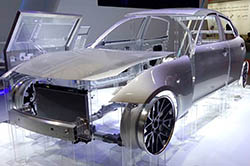 Automotive Body Panels/Frames
Automotive Body Panels/FramesAluminum alloy 5052-H32 is commonly used for 3/16" aluminum sheet for automotive applications because of its high strength, excellent formability, and good corrosion resistance.
-
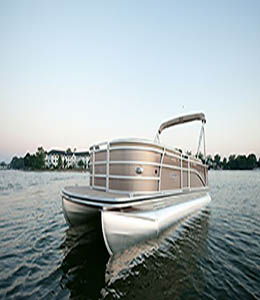 Marine Components
Marine ComponentsSuch as boat hulls and decks, marine applications require aluminum sheets and panels with high corrosion resistance to withstand harsh seawater environments. Aluminum alloy 5086-H116 is a popular choice for 3/16" aluminum plate in marine applications.
-
 Aerospace Components
Aerospace ComponentsSuch as aircraft wings and fuselages, aerospace applications require aluminum sheets with a high strength-to-weight ratio and good fatigue resistance. Aluminum alloy 2024-T3 is commonly used for 3/16" aluminum sheet in aerospace applications.
-
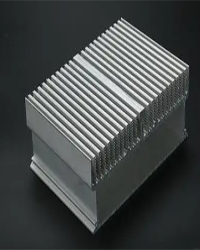 Electrical Enclosures/Heat Sinks
Electrical Enclosures/Heat SinksAluminum alloy 6063-T52 is commonly used in 3/16" aluminum plates in electrical enclosures and heat sinks due to its excellent thermal conductivity and good corrosion resistance.
-
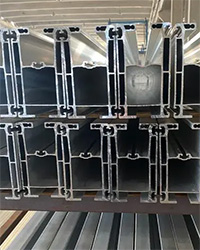 Industrial Equipment/Machinery Components
Industrial Equipment/Machinery Components3/16" Aluminum Sheet Aluminum alloy 3003-H14 is often used in industrial applications because of its excellent formability, good corrosion resistance, and low cost.
Be sure to consult your supplier or materials expert to determine the best aluminum alloy and specification for your particular application.
When purchasing 3/16" aluminum sheet, it is important to consider factors such as alloy selection, surface treatment and finishing options. It is also important to ensure that the supplier has the necessary quality certification and manufacturing capabilities to produce a high quality product.

